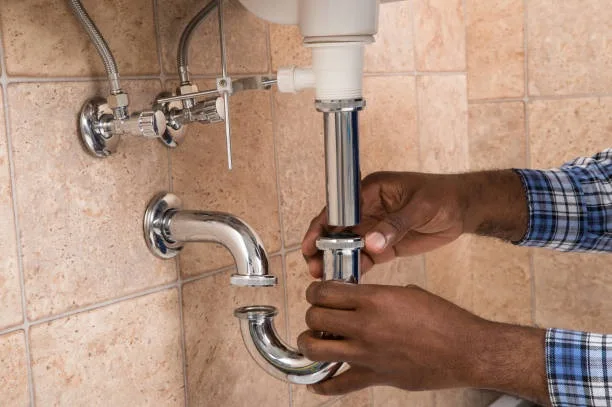When we think of disaster preparedness, we often envision emergency kits, evacuation plans, and first responders. While these factors are undeniably important, one group of professionals whose role in disaster preparedness is often overlooked is plumbers. Plumbing may not be the first thing that comes to mind during a disaster, but it is critical to ensuring public health and safety both during and after a disaster. This blog will look at the critical role of plumbers in disaster preparation and response.
1. Maintaining Access to Safe Drinking Water
Access to clean and safe drinking water is one of the most important functions of plumbing. Water supply lines can be damaged or contaminated during natural disasters such as hurricanes, floods, and earthquakes. Plumbers are critical in restoring and maintaining access to safe drinking water.
– Emergency Repairs: Plumbers are frequently called upon to repair damaged water supply lines. This includes repairing broken pipes, repairing leaks, and ensuring that water treatment systems continue to function.
– Water Testing: Plumbers can also test the quality of the water supply to ensure that it is safe to drink. This is especially important following natural disasters that may have contaminated water supplies.
– Temporary Water Solutions: Plumbers may set up temporary water distribution systems in some cases, providing clean water to affected communities until the regular water supply is restored.
2. Wastewater and Sewage Management
Proper sanitation is a critical component of disaster preparedness. Plumbers are critical in managing wastewater and preventing disease spread when sewage systems are compromised or overwhelmed during disasters.
– Sewage Cleanup: Plumbers can help clean up sewage backups or overflows, ensuring that contaminated water is disposed of properly, and preventing contamination of clean water sources.
– Portable Toilets and Sanitation: Plumbers can install portable toilets in emergency shelters and disaster-affected areas, assisting in the maintenance of sanitary conditions and the prevention of disease spread.
3. Mold and Water Damage Prevention
Following a disaster, water damage and mold growth can pose serious health risks as well as structural damage to buildings. Plumbers can help prevent and mitigate these problems.
– Quick Repairs: Plumbers can respond quickly to plumbing leaks and other issues that could cause water damage. Repairing structures and belongings as soon as possible helps to prevent further damage.
– Mold Remediation: In cases where mold has already begun to grow, plumbers can help with mold remediation efforts by identifying and addressing moisture sources.
4. Gas Line Security
Plumbers are also responsible for ensuring gas line safety during and after disasters, in addition to water-related issues. Gas leaks can cause fires and explosions, so detecting and repairing them is critical.
– Gas Line Inspections: Plumbers can inspect gas lines for damage or leaks and make the necessary repairs to ensure residents’ and businesses’ safety.
– Turning Off Gas Lines: In some cases, plumbers may be responsible for turning off gas lines in disaster-affected areas in order to avoid further hazards.
5. Coordination and Emergency Response
Plumbers frequently work as part of emergency response teams during large-scale disasters, collaborating with other first responders and agencies to ensure that plumbing-related issues are addressed as soon as possible.
– Communication: Effective communication between plumbers, emergency responders, and local authorities is critical for disaster response efforts to be coordinated.
– Priority Services: To ensure the functionality of critical infrastructure and facilities such as hospitals, emergency shelters, and water treatment plants during and after disasters, plumbers may prioritize them.
6. Education in the Community
Plumbers can also help communities prepare for disasters by educating them on plumbing-related risks and preventive measures. This education can include information on water conservation, proper plumbing system maintenance, and recognizing signs of plumbing problems.
7. Resilience of Infrastructure
Plumbers and plumbing professionals like Tyler At True Plumbing play a crucial role in the long-term resilience of infrastructure. They are at the forefront of creating, installing, and maintaining systems that are specifically designed to withstand disasters and minimize damage. This extends beyond routine plumbing services and involves a deep understanding of materials and techniques that can significantly reduce the likelihood of plumbing-related issues occurring during a disaster. Their expertise is instrumental in ensuring that communities can better withstand the challenges posed by unforeseen emergencies, ultimately contributing to the safety and well-being of all.
Conclusion
Plumbers are unsung heroes when it comes to disaster preparation and response. Their knowledge of clean water sources, wastewater management, mold and water damage prevention, gas line safety, and responding to plumbing-related emergencies is critical for public health and safety during and after disasters. Communities can improve their resilience and readiness in the face of unforeseen challenges by recognizing the critical role of plumbers in disaster preparedness and providing them with the necessary support and resources. When disaster strikes, remember that plumbing services are among the dedicated professionals working behind the scenes to ensure our communities’ safety and well-being.


